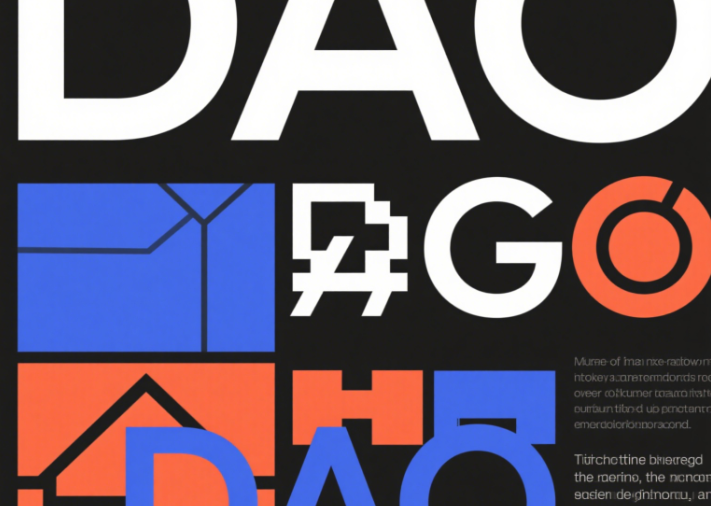In the rapidly evolving landscape of blockchain and Web3, Decentralized Autonomous Organizations (DAOs) are reshaping how communities, businesses, and institutions operate. These blockchain-based entities enable decentralized decision-making, transparency, and ownership, marking a paradigm shift from traditional hierarchical structures. As the crypto space matures, DAOs are becoming the backbone of innovation, driving growth in DeFi, NFTs, and beyond. This article explores the core principles of DAOs, their real-world applications, challenges, and how Bitora empowers users to navigate this transformative ecosystem.
What Are DAOs? The Foundations of Decentralized Governance
A DAO is a digital organization governed by its members through smart contracts, eliminating the need for central authorities. These organizations operate based on rules encoded in blockchain protocols, ensuring transparency, immutability, and community-driven decision-making. Members typically hold governance tokens, which grant voting rights proportional to their stake.
Key Features:
- Decentralization: Power is distributed among token holders, avoiding centralized control.
- Transparency: All transactions and decisions are publicly recorded on the blockchain.
- Automation: Smart contracts execute decisions automatically, reducing human intervention.
- Inclusivity: Anyone with an internet connection can participate, fostering global collaboration.
For example, MakerDAO (the decentralized stablecoin project) allows token holders to vote on monetary policies, while ConstitutionDAO famously crowdfunded $47 million to purchase a rare U.S. Constitution copy, demonstrating DAOs’ potential for collective action.
DAOs in Action: Real-World Use Cases
DAOs are no longer theoretical—they’re driving innovation across industries:
1. Decentralized Finance (DeFi)
DAOs play a pivotal role in DeFi governance. Projects like Uniswap and Aave rely on DAOs to manage protocol upgrades, fee structures, and asset listings. Token holders vote on proposals, ensuring decentralized control over critical decisions. For instance, Uniswap’s governance token (UNI) allows users to shape the platform’s future, while Curve DAO manages liquidity pools and incentives.
2. Non-Fungible Tokens (NFTs)
NFT-focused DAOs, such as Friends with Benefits (FWB) and Bankless DAO, enable communities to collectively own and manage digital assets. FWB operates as a social club where members vote on NFT drops and events, while PleasrDAO buys and curates iconic NFTs like the “Doge” meme, with decisions made democratically.
3. Open Source and Developer Ecosystems
DAOs like Gitcoin and MolochDAO fund open-source projects through decentralized grant-making. Developers propose projects, and token holders allocate funds, democratizing innovation. Gitcoin’s quadratic funding model ensures that community-vetted projects receive proportional support.
4. Supply Chain and Logistics
DAOs are revolutionizing supply chain transparency. Vakt, a DAO for energy trading, uses blockchain to track oil transactions, while Provenance ensures ethical sourcing of goods. These DAOs reduce fraud and enhance accountability through decentralized record-keeping.

The Advantages of DAOs Over Traditional Organizations
DAOs offer several game-changing benefits:
- Efficiency: Smart contracts automate processes, reducing bureaucratic delays.
- Security: Blockchain’s immutability safeguards against fraud and manipulation.
- Accessibility: Anyone can participate, lowering barriers to entry for global talent.
- Flexibility: DAOs can adapt quickly to market changes through community voting.
For example, Yearn Finance’s DAO adjusts yield farming strategies in real time, optimizing returns for users.
Challenges and Risks in the DAO Ecosystem
While DAOs hold immense promise, they face significant hurdles:
1. Security Vulnerabilities
Smart contract bugs can lead to exploits. The 2016 DAO Hack drained $50 million from The DAO, prompting Ethereum’s hard fork. Projects now use audits and tools like OpenZeppelin to mitigate risks.
2. Regulatory Uncertainty
DAOs often operate in legal gray areas. The U.S. SEC has classified some tokens as securities, complicating compliance. Projects like Lido DAO face lawsuits over their legal status, highlighting the need for clearer regulations.
3. Governance Centralization
In practice, large token holders may dominate decision-making, undermining decentralization. DAOs like Compound address this by incentivizing participation through token rewards.
4. Scalability Issues
Blockchain congestion and high gas fees can slow DAO operations. Layer 2 solutions (e.g., Polygon) and sidechains are being adopted to improve scalability.
The Future of DAOs: Trends and Innovations
DAOs are evolving rapidly, driven by technological advancements:
- AI Integration: DAOs like SingularityNET use AI to automate governance tasks, such as proposal analysis and risk assessment.
- Cross-Chain Interoperability: Projects like Polkadot enable DAOs to operate across multiple blockchains, expanding their reach.
- Decentralized Identity: Solutions like SelfKey enhance security by verifying user identities without centralized authorities.
By 2031, the DAO development market is projected to grow at an 8.6% CAGR, reaching $3.51 billion .
How Bitora Supports DAO Enthusiasts
At Bitora, we bridge the gap between DAO innovation and user accessibility. Our platform provides:
- Real-Time Data: Track DAO token performance, governance activity, and market trends.
- Educational Resources: Learn about DAO mechanics, security best practices, and emerging trends.
- Community Insights: Connect with DAO leaders and developers through our forums and events.
Whether you’re a crypto veteran or a newcomer, Bitora equips you to navigate the DAO landscape with confidence.
Conclusion: Embrace the DAO Revolution
DAOs are redefining collaboration, ownership, and governance in the digital age. From funding open-source projects to revolutionizing supply chains, their impact is profound. While challenges persist, the future of DAOs is bright, fueled by innovation and community-driven growth.
Stay ahead with Bitora’s DAO insights. Visit Bitora to explore the decentralized future today.








Leave A Reply